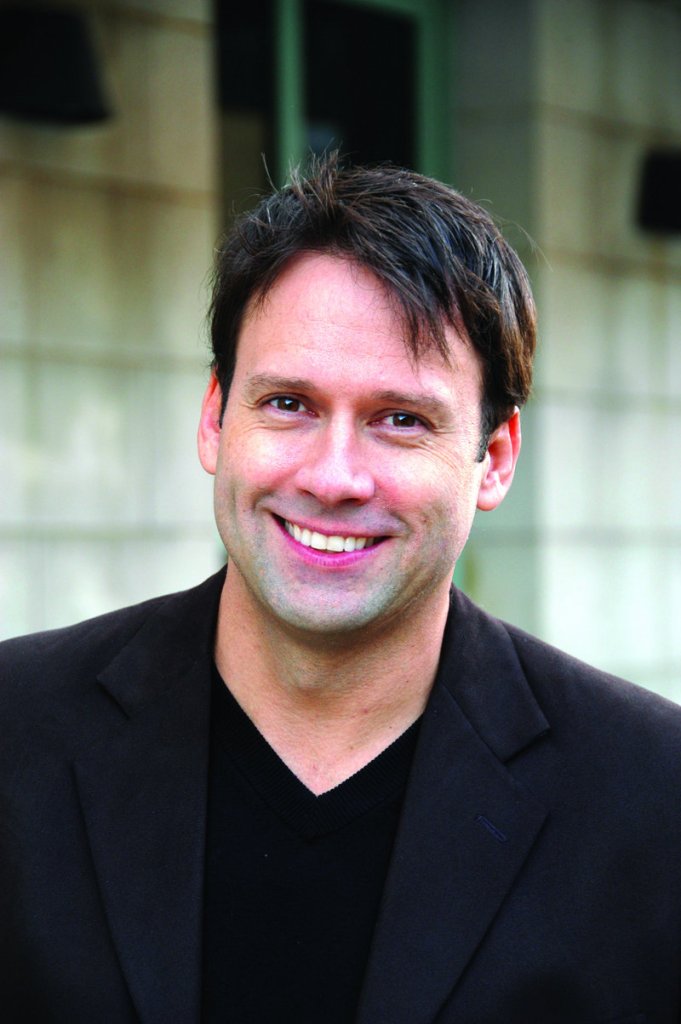The upcoming season of the Portland Symphony Orchestra promises to be a strange and wonderful creation, with the hoariest of old chestnuts — the Beethoven Fifth, the Tchaikovsky Piano Concerto No. 1, Prokofiev’s “Classical” symphony, the “William Tell” overture — mixed with some lesser-heard works.
Of the latter, some are highly unusual ones, and some I would walk a long way to hear, such as Samuel Barber’s Piano Concerto with Maine’s own Martin Perry.
I like the Beethoven and Tchaikovsky as much as the next man, but the “V” for victory motif has become a cliche, even on “Judge Judy.” Why not the hymn to nature of the Sixth or the “Apotheosis of the Dance,” the Seventh? And why not the Tchaikovsky No. 2, which is never played but, like its more famous predecessor, sounds better than it is?
There’s some excuse for the Lone Ranger music in a concert devoted to the cello, but Prokofiev deserves better than his Mozart send-off. To PSO music director Robert Moody’s credit, he couples it with the Mozart Violin Concerto No. 3 featuring concertmaster Charles Dimmick and the Symphony No. 39, so the audience can hear for itself what makes the “Classical” symphony sound just a bit “off.”
Listeners to the first concerts of the season, Oct. 7 and Oct. 9, will hear not only the Tchaikovsky, but some good sci-fi music: “Mothership” by Moody’s friend Mason Bates, and Aaron Copland’s Symphony No. 3, whose third and fourth movements are used as a motif for his famous “Fanfare for the Common Man.” The fanfare in the symphony, Copland’s last, is not quite the same as the stand-alone piece, but close enough.
The celebration of the cello (no one should ever use the pun “Cello-bration,” but the PSO has) on Oct. 30, in addition to the Rossini, will feature Vivaldi’s Concerto for Two Cellos; another Concerto for Two Cellos by David Ott, premiered in 1988 by the National Symphony Orchestra under Mstislav Rostropovich; and the Shostakovich Symphony No. 1, which the composer wrote at age 19 and includes one cello solo.
The 1945 “Firebird” suite will conclude what promises to be an exciting Sunday afternoon on Nov. 18, with guest conductor Timothy Myers. Concert-goers will hear what Debussy does with another Stravinsky theme, “Printemps,” followed by the great Horn Concerto No. 1 of Richard Strauss featuring Jeff Nelson of the Canadian Brass Ensemble and Carl Maria von Weber’s Overture to “Euryanthe.”
After the Mozart birthday concert on Jan. 27 comes the Beethoven Fifth on Feb. 5 with two strange oriental bedfellows: Bartok’s “Miraculous Mandarin” suite and “Butterfly Lovers’ Violin Concerto” by Chen Gang and He Zhanhao, played by Andrera Segar. The concerto, written in 1955 and rediscovered after the Cultural Revolution in China, is now one of the most popular traditional Chinese works transcribed for modern orchestra.
What is there to say about Haydn’s “Creation” to be heard in its entirety on March 5, under guest conductor Donald Neuen? Only that its composer wrote one of the most compelling melodies of all time, now the German national anthem.
My favorite program will be on April 9, when the orchestra will perform the Barber Concerto, Hovhaness’ Symphony No. 2 (“Mysterious Mountain”) and the Elgar “Enigma” variations.
The enigma is the base upon which the variations are written, and has remained the most investigated (and unsolved) mystery in music. Solutions range from “God Save the King” to the irrational number Pi.
More important, as Maine composer Elliott Schwartz writes: “In my opinion, this is one of THE GREATEST symphonic works of its time — on the cusp between 19th & 20th centuries. Probably the greatest English composition since Purcell’s Dido. How many years is that, 300?”
Handel’s Concerto a due cori, No. 1, on April 14, is also one of my favorites, coupled with Henri Tomasi’s Concerto for Saxophone and Paul Hindemith’s colorful “Mathis der Maler (Matthias the Painter).”
Combine all of the above with some imaginative Pops concerts and “The Magic of Christmas” shows, and you have a season with something for everyone.
For performance times, ticket prices and other information, visit portlandsymphony.org.
Christopher Hyde is a writer and musician who lives in Pownal. He can be reached at:
classbeat@netscape.net
Send questions/comments to the editors.



Success. Please wait for the page to reload. If the page does not reload within 5 seconds, please refresh the page.
Enter your email and password to access comments.
Hi, to comment on stories you must . This profile is in addition to your subscription and website login.
Already have a commenting profile? .
Invalid username/password.
Please check your email to confirm and complete your registration.
Only subscribers are eligible to post comments. Please subscribe or login first for digital access. Here’s why.
Use the form below to reset your password. When you've submitted your account email, we will send an email with a reset code.